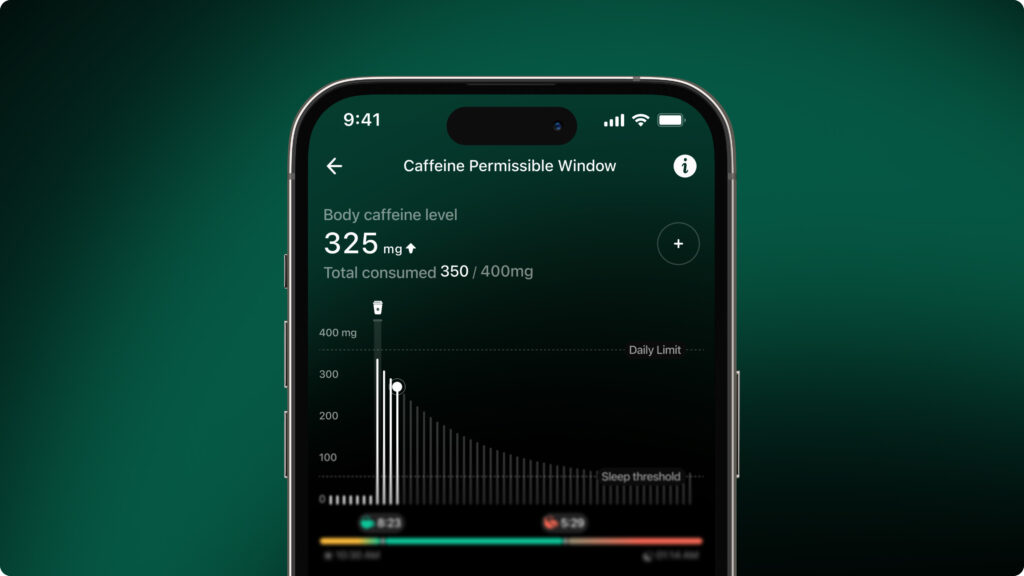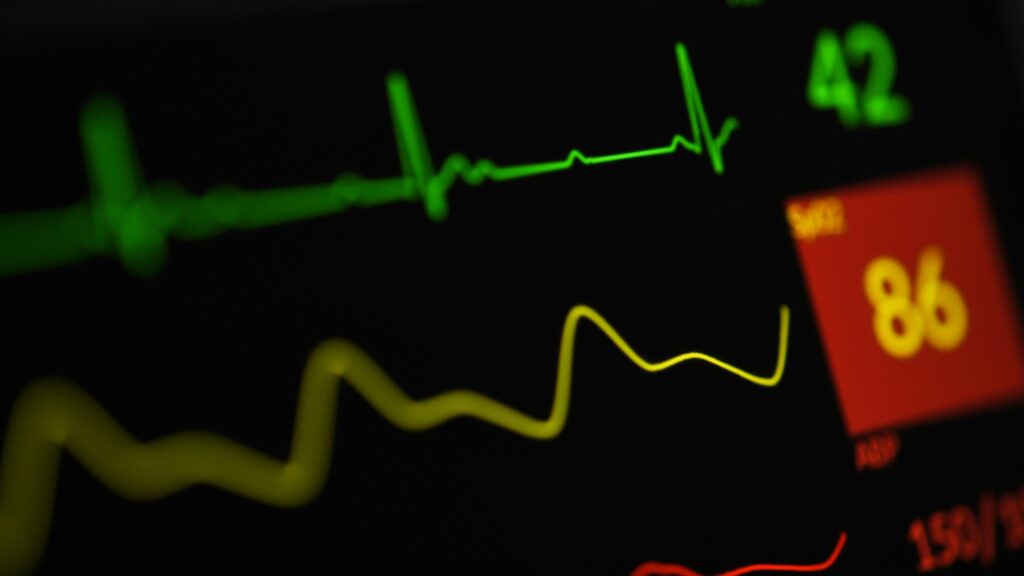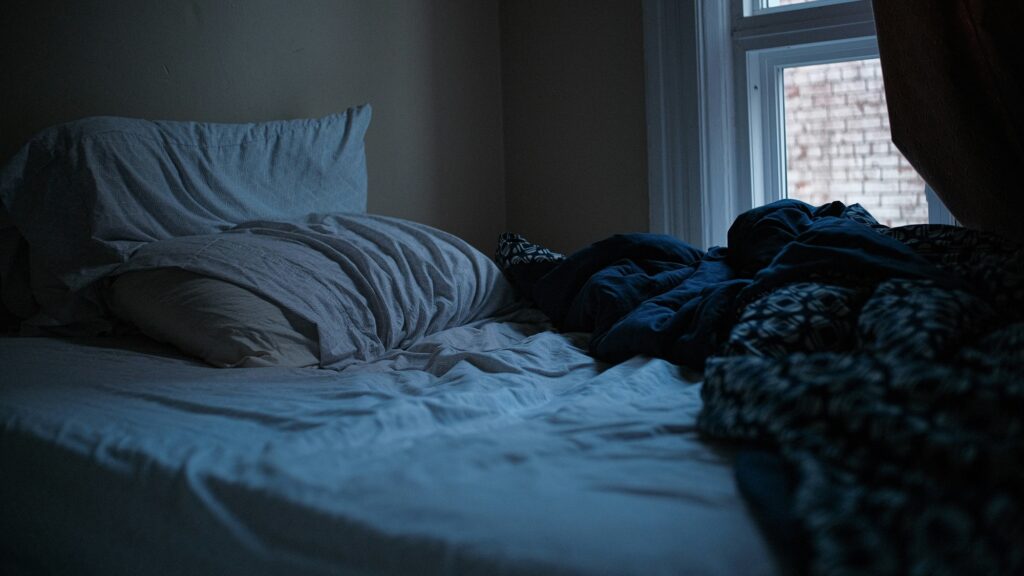You crushed your workout, ate clean, and wound down early. So why do you still wake up tired?
The culprit might be hiding in your morning ritual – or your 4 PM coffee fix.
Caffeine is a powerful performance enhancer, but it’s also a silent saboteur when mistimed. While many worry about it keeping you awake, late caffeine disrupts your brain’s ability to slip into deep, restorative sleep. That pushes your body’s internal clock (circadian rhythm) out of sync and delays the very processes that help you repair, recover, and show up stronger the next day.
In this article, we dive into how late caffeine affects your sleep latency, interferes with your circadian rhythm, and alters key sleep stages like deep and REM.
We’ll also answer the real question: how long before bed should you actually cut it off? Spoiler alert – it’s longer than you think.
Read more: Ultrahuman Ring AIR upgraded Caffeine Window explained
Highlights:
- Caffeine blocks adenosine, delaying natural tiredness
- Its half-life (5–7 hrs) means even a 2 PM coffee can affect sleep
- Late caffeine can block deep sleep and REM – even if you fall asleep easily
- Slow metabolizers and women on the pill clear caffeine more slowly
- Use caffeine 90–120 mins after waking, and avoid it 6–8 hrs before bed.
The hidden cost of late caffeine
Caffeine often feels like the perfect pick-me-up, sharpening focus and pushing off fatigue just when you need it most. But beneath that alertness lies a more complex mechanism.
Caffeine works by blocking adenosine, a neurotransmitter that builds up throughout the day to signal the brain it’s time to rest. By interrupting this signal, caffeine masks tiredness rather than eliminating it.
This creates what’s often called a “second wind”, a temporary burst of energy that can delay the natural onset of fatigue. The catch? Once the caffeine wears off, adenosine floods back in, often at the wrong time, leading to delayed tiredness, disrupted sleep cycles, and a sense of being tired yet wired.
Caffeine’s half-life means it’s still in your system at bedtime

Part of what makes caffeine so disruptive to sleep isn’t just how it works, but how long it lingers. With a half-life of 5 to 7 hours, caffeine remains active in the bloodstream long after its stimulating effects seem to wear off. This means even a mid-afternoon coffee can interfere with your ability to fall asleep at night.
For slow metabolizers, individuals with certain variants of the CYP1A2 gene, this process takes even longer, extending caffeine’s effects well into the evening.
Hormonal factors, such as the luteal phase of the menstrual cycle or use of oral contraceptives, can also slow down clearance.¹
The science: Why you should delay your morning coffee by 90 minutes
The result? A measurable impact on sleep quality. Caffeine not only increases sleep latency (the time it takes to fall asleep) but also reduces slow-wave sleep – the deep, restorative stage critical for physical recovery – and fragments REM sleep, which supports memory, learning, and emotional balance.
Even if you manage to fall asleep, it’s often lighter, less restorative sleep, leaving you depleted in the morning. These disruptions can also be seen in heart rate variability (HRV), a key marker of recovery and nervous system balance, which often dips after caffeine-affected sleep.
How caffeine timing affects sleep quality

Given how long caffeine stays in the body, when you consume it is just as important as how much. Research shows that having caffeine even 6 to 8 hours before bedtime can significantly reduce sleep quality.
In one study, participants who consumed 400 mg of caffeine six hours before bed slept over an hour less compared to when they avoided caffeine. And this happened even when they didn’t feel more awake at bedtime—a clear sign that the disruption occurs at a neurological level, not just a perceived one.²
The effects are multi-layered: caffeine increases the time it takes to fall asleep (sleep onset latency), reduces slow-wave sleep (SWS)—the deep, restorative stage—and shortens overall sleep duration. So even if you manage to fall asleep, your brain is likely not getting the full recovery it needs, especially if caffeine was in your system during the wind-down window.
Who should be extra careful with caffeine?
Some people are more sensitive to caffeine’s effects, both in how long it stays in the body and how strongly it impacts the nervous system. For these individuals, even moderate caffeine intake can lead to sleep disruption, anxiety, or poor recovery. Here’s who should pay closer attention:
Slow metabolizers (CYP1A2 gene)
People with the slow variant of CYP1A2 process caffeine more slowly. This gene controls an enzyme in the liver responsible for breaking down caffeine. Clearance can take up to twice as long compared to fast metabolizers, increasing the risk of jitteriness, sleep disruption, and long-term cardiovascular effects. Genetic testing or noticing consistent sensitivity to caffeine can help identify this.³
Women on oral contraceptives or in their luteal phase
Estrogen interferes with caffeine clearance. Women on the pill or in the luteal phase (when estrogen and progesterone are higher) metabolize caffeine more slowly, increasing its duration and effects—especially if consumed in the afternoon or evening.⁴
People with anxiety, insomnia, or light sleepers
These individuals often feel caffeine’s effects more acutely. Even modest doses can increase restlessness and reduce sleep depth. Adjusting both timing and dosage can significantly improve sleep and recovery.
Smart strategies: how to use caffeine without ruining your sleep
Let’s get to the good news: you don’t have to give up caffeine—you just need to align it with your body’s rhythms, personal sensitivity, and recovery goals.
Wait 90–120 minutes after waking for your first cup
Your body naturally releases cortisol about 30–45 minutes after waking, helping flush out adenosine. Drinking caffeine too early blocks adenosine receptors before this process finishes –leading to a crash once the caffeine wears off.
Try this: hydrate with water, a pinch of salt, and lemon first. Then have your coffee mid-morning when your body’s ready.⁵
Avoid caffeine 6–8 hours before bed
Set a cutoff (e.g. 2 PM). Replace afternoon coffee with herbal teas or decaf.
Switch to gentler alternatives in the afternoon
- Decaf coffee: still contains some caffeine, so use it sparingly
- Green tea or cacao: low-dose stimulation + antioxidants
- L-theanine: calms focus, reduces overstimulation
- Rhodiola rosea: supports energy without affecting sleep
- Caffeine + L-theanine: sharpens attention, reduces jitteriness
Use smaller, smarter doses
Microdose caffeine (20–40 mg) to sustain focus without overstimulation.
Try this: half a cup of coffee or green tea every few hours if you’re working long hours.
Take a “caffeine reset”
Over time, tolerance builds as the brain creates more adenosine receptors. A 7–10 day break can reset your sensitivity.
Try this: explore non-stimulant nootropics like breathwork, cold exposure, or midday movement.
Understand your personal sensitivity
If caffeine disrupts your sleep or makes you anxious, genetics or hormones may be affecting how you metabolize it.
Try this: track your caffeine timing and sleep quality for a week. Adjust based on how you feel.
Summary
You don’t have to quit caffeine—you just need to use it with intention. By aligning your intake with your body’s rhythms, genetics, and recovery needs, you can get the focus you want without sacrificing the sleep you need.
Start by tracking your intake, sleep latency, and HRV trends in the Ultrahuman app. Whether you’re experimenting with timing, dosage, or alternatives, your data will show what works best for your biology—so you can fuel performance without burning out.
References
- Sleep and Caffeine | Benefits and Risks
- Caffeine Effects on Sleep Taken 0, 3, or 6 Hours before Going to Bed
- Coffee, CYP1A2 genotype, and risk of myocardial infarction – PubMed
- Impairment of caffeine clearance by chronic use of low-dose oestrogen-containing oral contraceptives – PubMed
- Caffeine stimulation of cortisol secretion across the waking hours in relation to caffeine intake levels







